One morning in September, Ashura Mciteka was sitting at home when her daughter burst through the door. “Come and see,” cried 10-year-old Ella, tugging her mother’s hand. Together they retraced Ella’s steps along a rocky, uneven pathway in their low-income neighbourhood in Nairobi, Kenya’s capital, to where the young girl had been playing.
The pair spotted it easily: a tangle of lifeless limbs in a muddy puddle.
As a trained health volunteer, 38-year-old Mciteka is frequently called to make home visits, treat common illnesses and arrange hospital referrals for her neighbours. She immediately knew what she was looking at: a recently aborted foetus.
“I’m also a mother, so I know,” she explains over the phone one month later, her voice low.
Over the last six months, across Dandora, an array of apartment blocks and informal settlements next to one of the largest unregulated landfill sites in Africa, Mciteka has directly dealt with or heard of at least 30 abandoned foetuses or newborn babies.
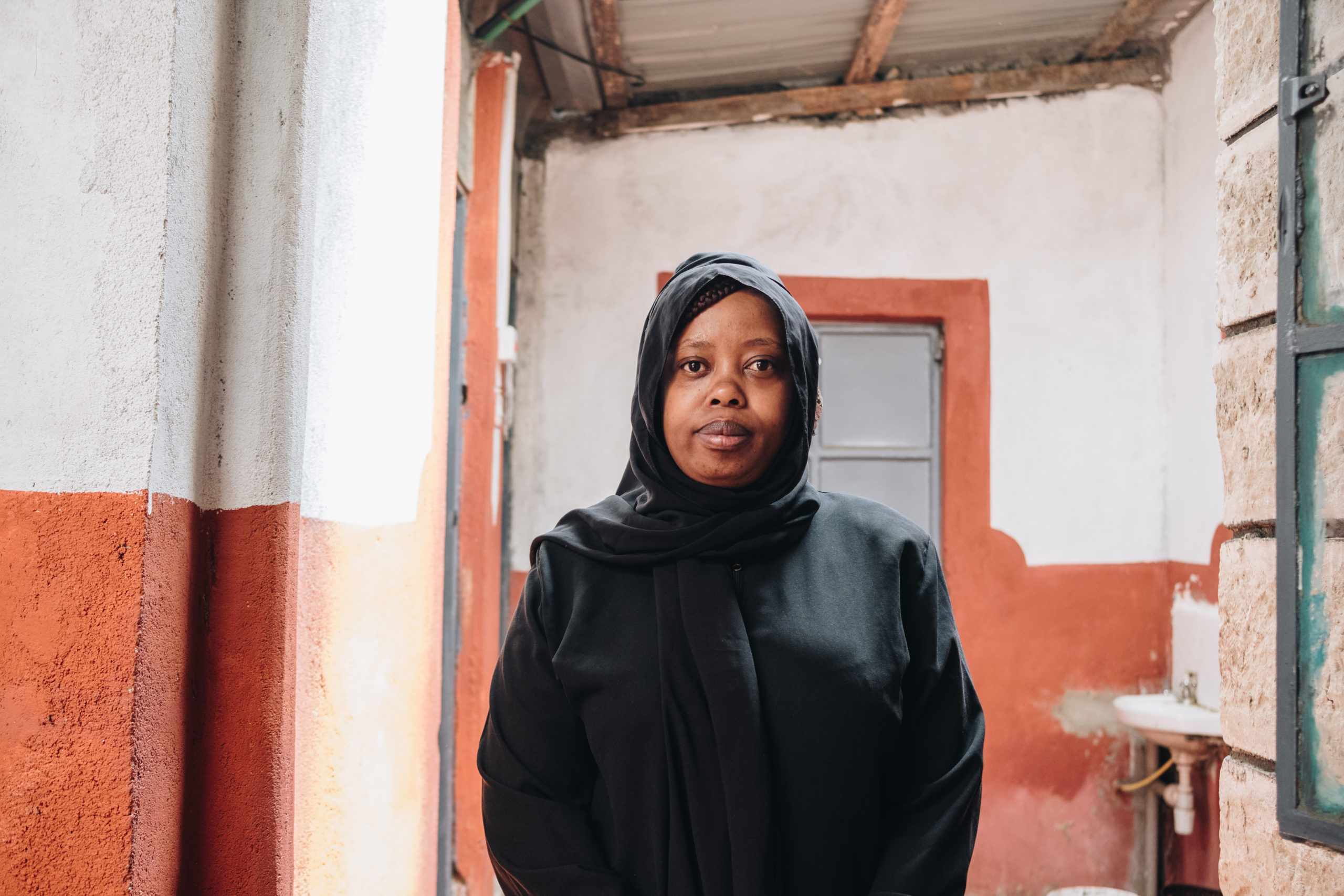
Five of these were found in the same tip minutes from her home, discovered by someone in her community – a rubbish collector, local resident and even her own young child.
In 2019, she knew of 10 cases, she says. “Even when I’m not around I get a call,” Mciteka says. “I say: okay, I’m far but let me see what I can do.”
In Kenya, the issue of abandoned newborns is not new. Last year, The Telegraph and The Fuller Project reported on a volunteer clean-up team, Komb Green Solutions, who had uncovered nine foetuses and babies in as many months while clearing one section of the Nairobi river of plastic, sewage and needles.
The river is just one place the babies are found: news of infants discovered in dustbins or discarded by the roadside hits headlines with unsettling frequency. But without a national centralised data system to keep track of the total, many cases go unreported.
Work by women like Mciteka offers a small window into the scale of the problem. In Kenya, abortion is illegal unless a woman’s life or health is in danger and almost two thirds of pregnancies among adolescent women aged 15-19 are unintended each year, according to the Guttmacher Institute.
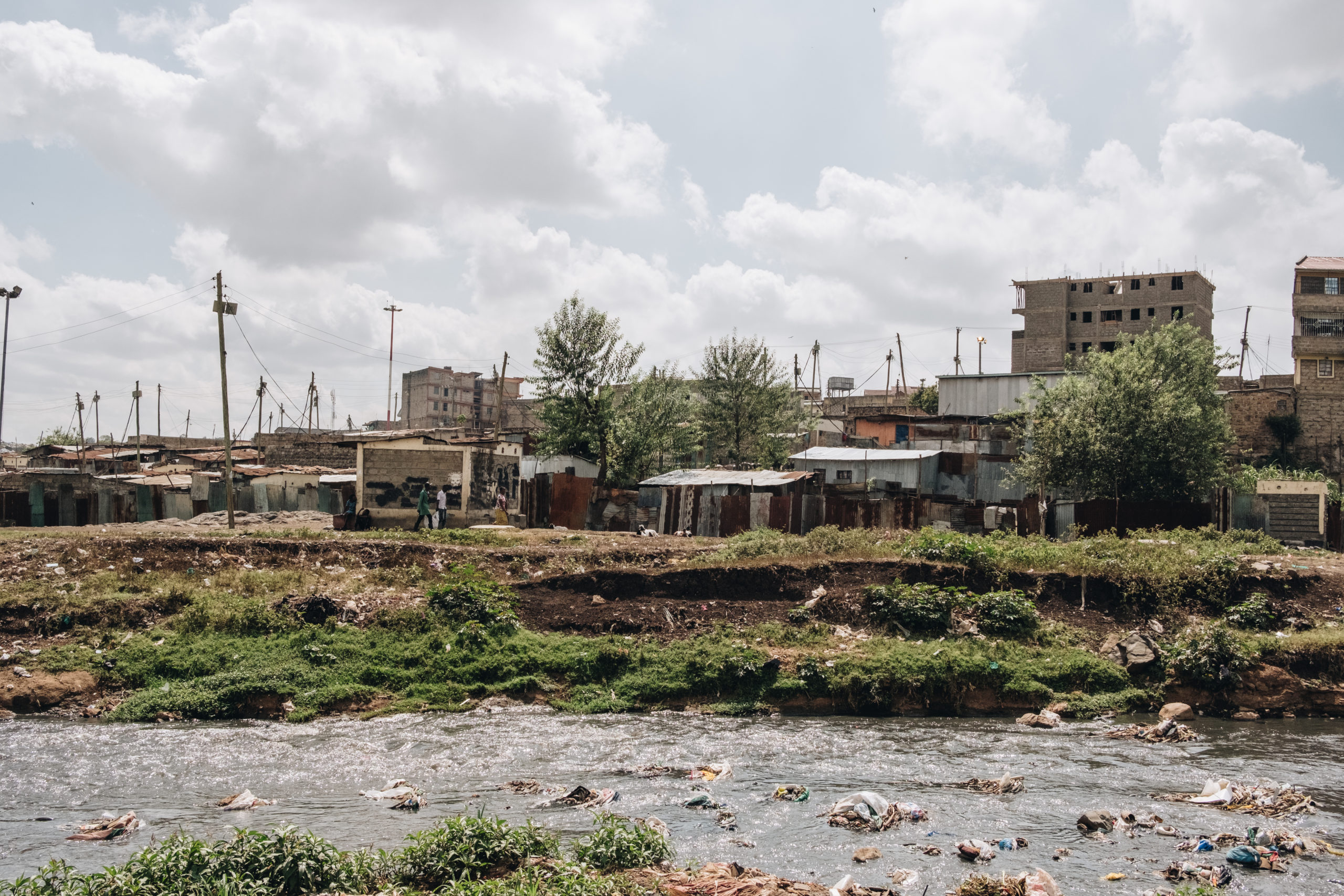
The 70-plus members of the Komb Green Solutions team have also noted an uptick since the outbreak of Covid-19. They’ve stumbled on 34 cases in total so far – 13 of which they’ve found since May, according to Christopher Wairimu, the group’s secretary.
“Some of them were breathing,” adds Debra Ogollah, a 26-year-old volunteer, “but unfortunately they only lived some seconds.”
The team continue to bury the newborns they find— including eight sets of twins found over the course of one year—in an ever-growing makeshift grave nestled next to the river (local police have given them permission to do so, say the Komb team).
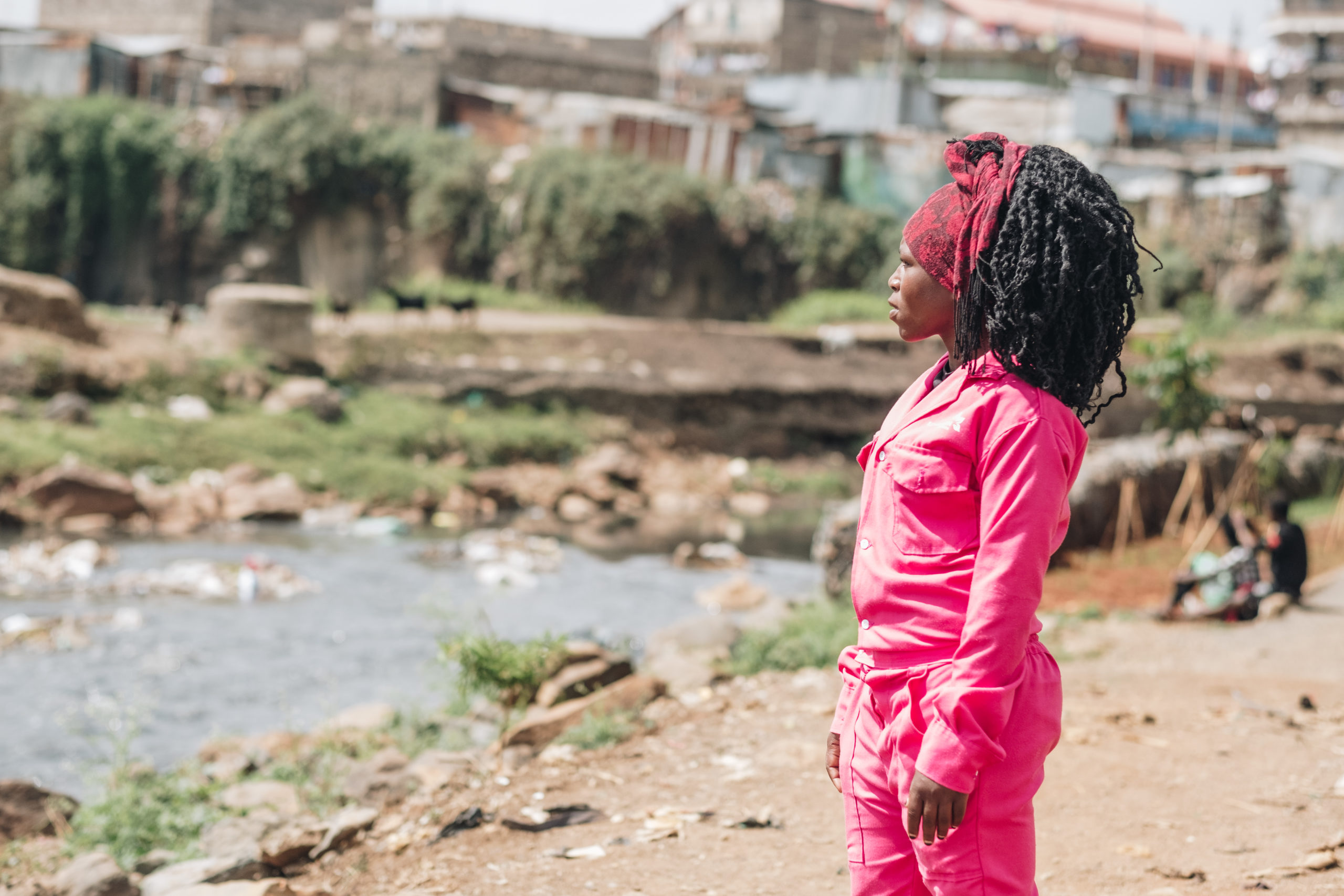
Several hours north of the capital, reports of the same issue are occurring across Nyeri County in central Kenya. In September, John Waruru, local assistant chief, rescued a newborn from a bush near the banks of the Gura River – the umbilical cord was still attached. On this occasion, the baby girl survived.
“I’m hearing of stories weekly,” says Nelly Munyasia, head of Reproductive Health Network Kenya (RHNK), a web of over 500 trained health professionals providing health services. “Initially it was just in Nairobi, but it seems to be spreading pretty fast across the country.”
Like many countries around the world, Kenya closed schools in March to help stem the spread of the virus. The move left some 18 million students with little to do for more than six months and restrictions on movement meant accessing contraceptives and reproductive health information became harder.
Related coverage: One-Fifth of Women Don’t Know if Abortion Is Illegal in Kenya, New Study Shows
The collapse of global medical supply chains earlier this year, meanwhile, is still causing knock-on delays and shortages for some clinics in Kenya. Several service providers in Munyasia’s network are reporting difficulty in accessing long-term contraceptive methods—such as hormonal implants and intrauterine devices (IUDs).
In Kenya, high rates of teenage pregnancy has long been an issue yet since mid-March, healthcare providers have repeatedly raised concerns about a spike during the pandemic.
Although comprehensive national data about the impact of Covid-19 is not yet available – and statistics can be patchy at best – community health organisations in informal settlements say, anecdotally, teenage pregnancies are soaring. And in the first seven months of 2020, the Ministry of Health noted a 35 per cent increase in the number of sexual and gender-based violence cases compared to the same period the previous year, particularly among girls aged between 10 and 17.
The Ministry of Health did not respond to The Fuller Project’s request for comment. During a September visit to Kibera, an informal settlement, one of its officials, Dr Mercy Mwangangi, acknowledged that “the same barriers that restrict sexual and reproductive health care during the most normal of circumstances still exist and are often magnified during the [coronavirus] crisis.”
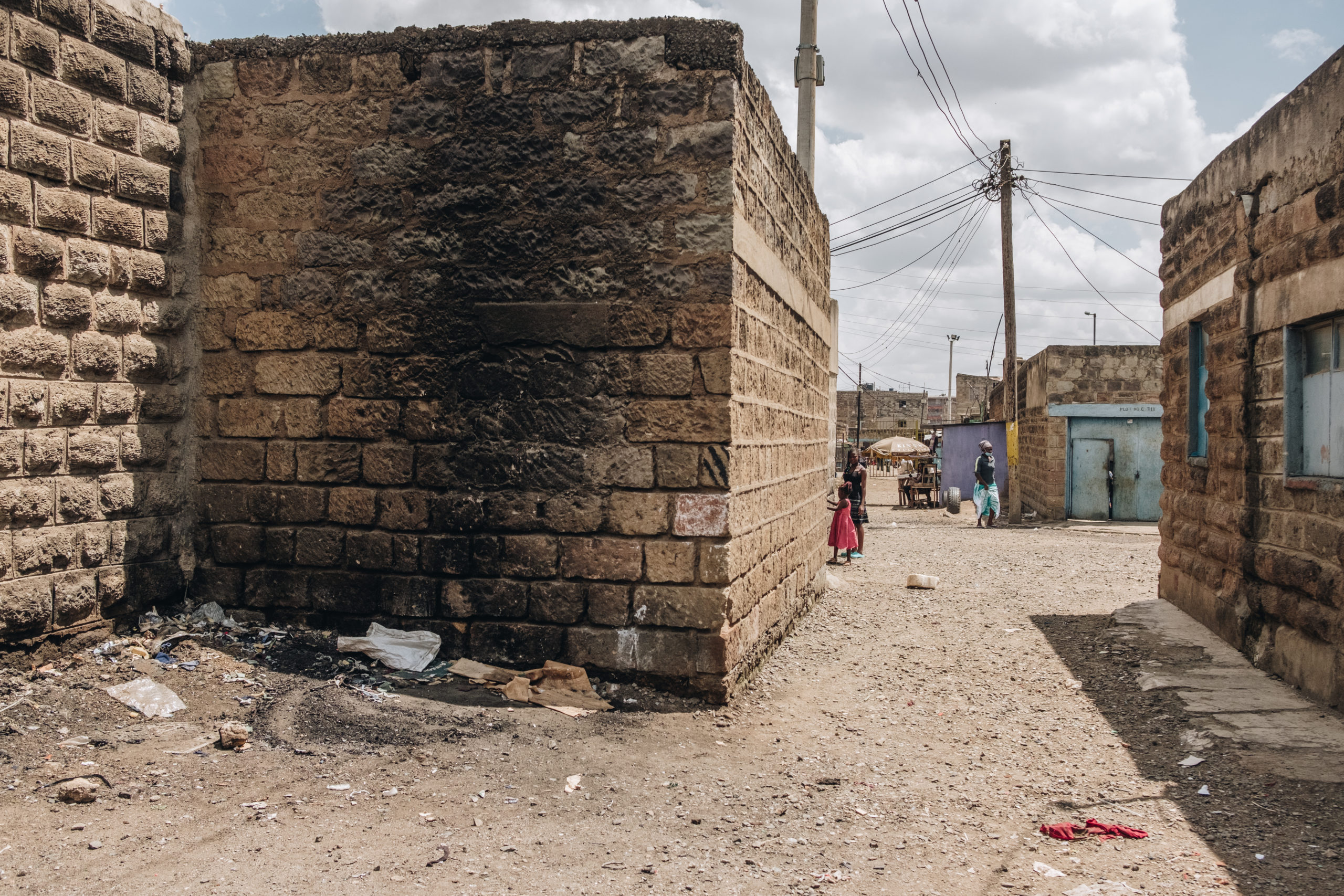
Parallels can be drawn with the Ebola outbreak in West Africa from 2014 to 2016, where similar public health measures and safety protocols – such as quarantine, curfews, and school closures – put girls and women at higher risk of violence and rape, according to a study by the United Nations Development Programme. In parts of Sierra Leone, the rate of teenage pregnancy during the Ebola crisis increased by 65 per cent.
But a spike in unplanned pregnancies only tells half the story, says Elizabeth Okumu, a programme manager at the Trust for Indigenous Culture and Health (TICAH). “We can’t ignore the end result,” she says over the phone from Nairobi, “which is high numbers of unsafe abortions.”
Nearly 90 per cent of Kenyans live on less than £4 a day, and the cost of a safe abortion procedure, roughly £150, is out of reach for many women. Unsafe abortions are cheaper, but typically involve visiting backstreet quacks who prescribe a concoction of dangerous – and sometimes lethal – chemicals. There is little support or aftercare and young women are frequently left to fend for themselves.
“We’re talking about people who really can’t afford it,” continues Okumu. “And seven months into [the pandemic], it makes sense. The timing fits. Doctors want a safe abortion, which is typically done between one and three months. In that stage, there’s no foetus. When we see foetuses in the community, we know it’s the work of quack doctors.”
“It’s like you’re carrying a burden.”
— Ashura Mciteka, mother and trained health volunteer
Back in Dandora, Mciteka quietly covered the aborted baby with an old cloth. She informed the local area chief, who in turn called the police to deal with the situation. When a foetus or newborn is found, there is no official process – sometimes the local chief or police help, but often it falls to community members like Mciteka to arrange a burial (it’s a different situation altogether if the child is still alive).
The heaviness is taking its toll, says Mciteka, who earlier this year founded a 15-member community-based organisation to try and help solve the issue. She feels stressed and worn down. “It’s like you’re carrying a burden,” she begins. “I’m a mother of three and I have two girls…I’m worried we might lose a lot of girls.”
Her fears are not unfounded. In Dandora, at least two teenagers have died during the pandemic due to abortion complications, according to Mciteka. And when, back in October, the Kenyan government announced schools would be allowed to partially reopen, she was concerned.
Teenagers still face a huge amount of stigma in Kenya when they become pregnant before marriage – and in some schools girls are required to take mandatory pregnancy tests. Mciteka thought she might see an increase in unsafe abortions the weekend before classrooms swung back into action. Instead, one Saturday night last month, a 13-year-old girl hung herself, she says.
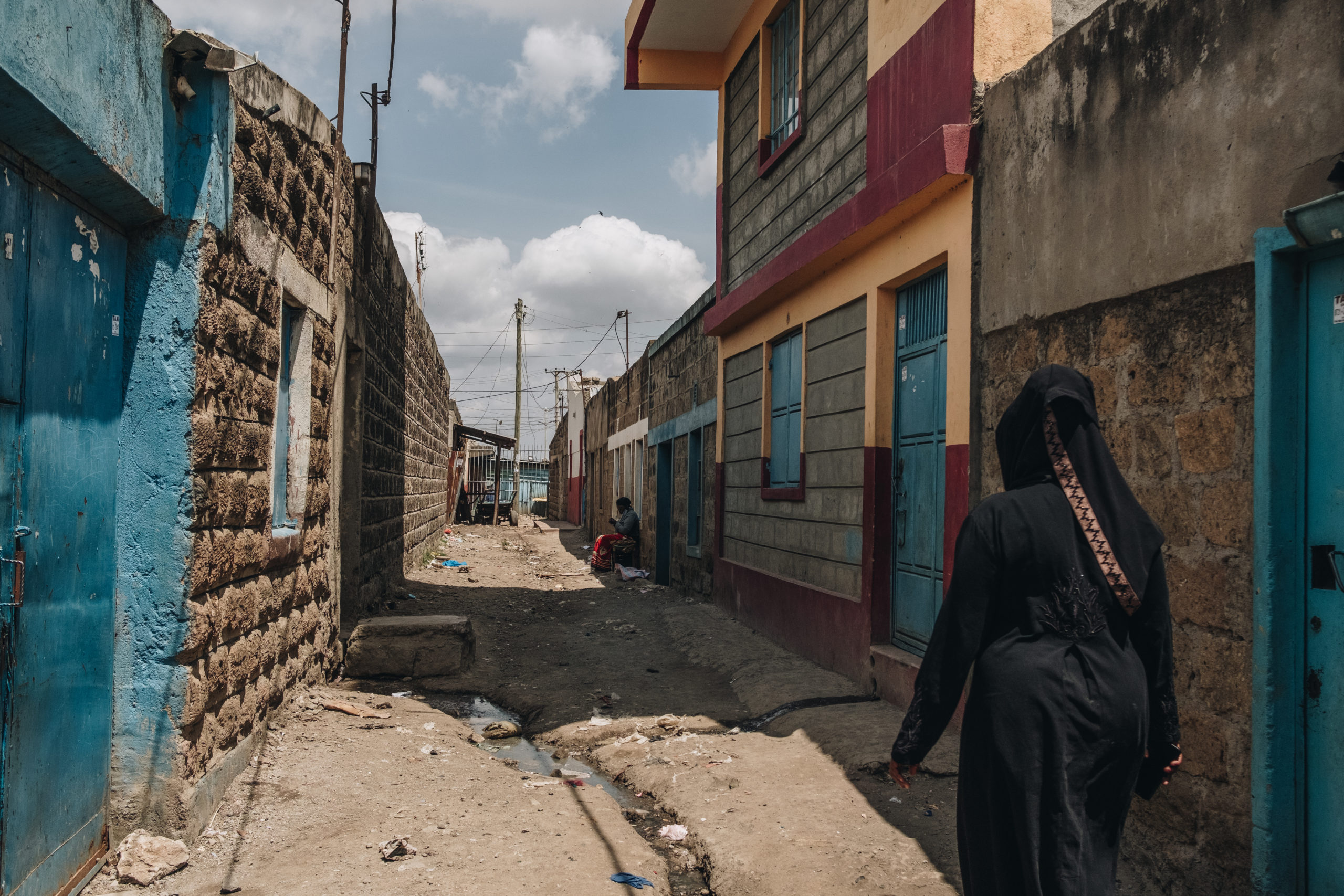
“She left a note,” says Mciteka, “telling her mother she’s very sorry. The boyfriend, the father, said he can’t help. Did she [not have] someone to talk to? Did she feel like being pregnant was the end of her life?”
For several weeks after finding the foetus, Mciteka’s daughter, Ella, didn’t leave their home. She only wanted to play inside. Since then, things have improved—she’s ventured past the front door but doesn’t wander far.
As a mother, it’s painful for Mciteka to watch something so dark take hold so close to home—but it’s also part of the reason why she can’t quit. “You see, I’m a Muslim, even my religion doesn’t support safe abortion. But if we don’t, how will my kids turn out? The girls in the community? We need to talk about it. I won’t stop talking about it.”



 Nasibo Kabale
Nasibo Kabale